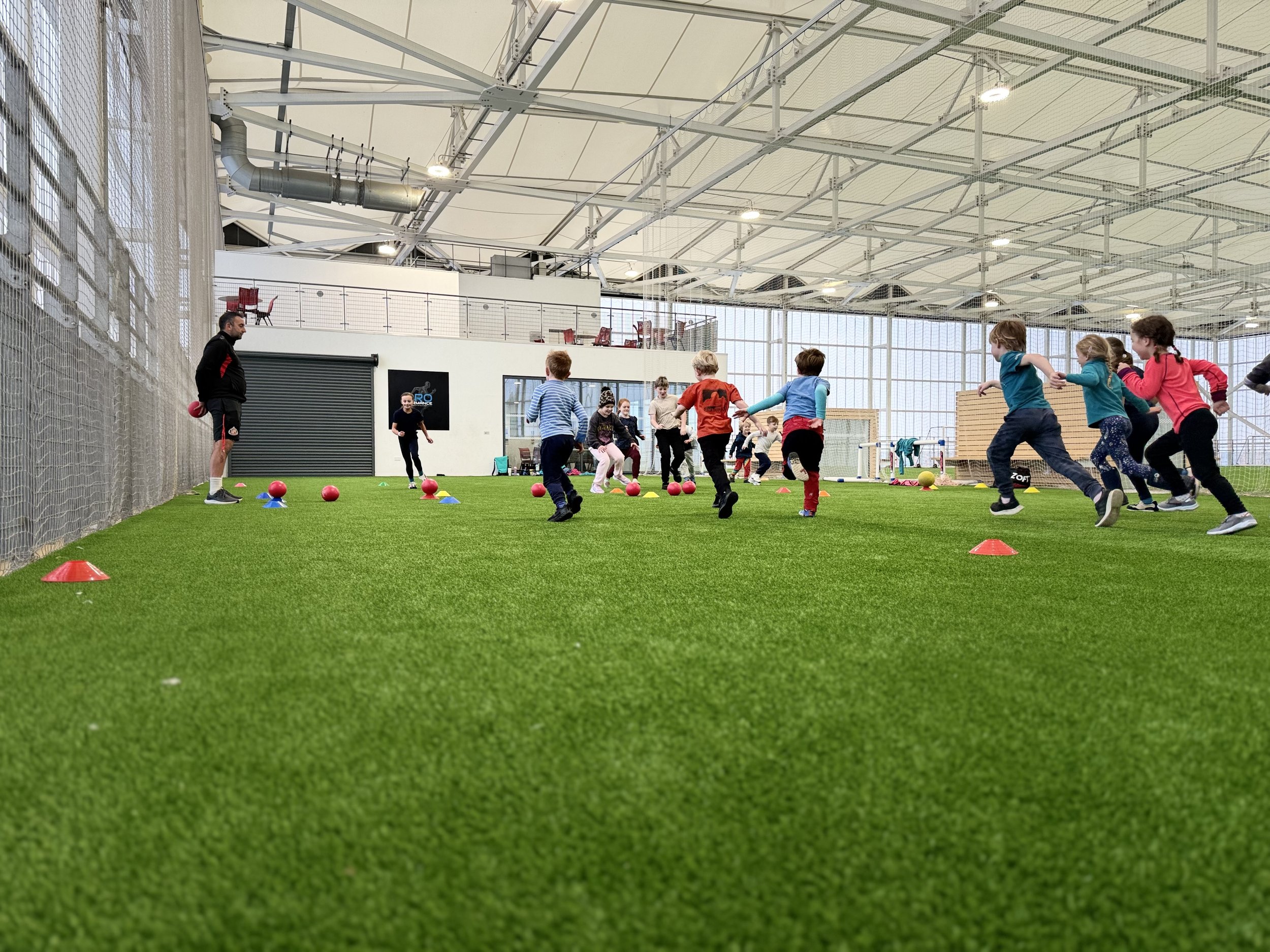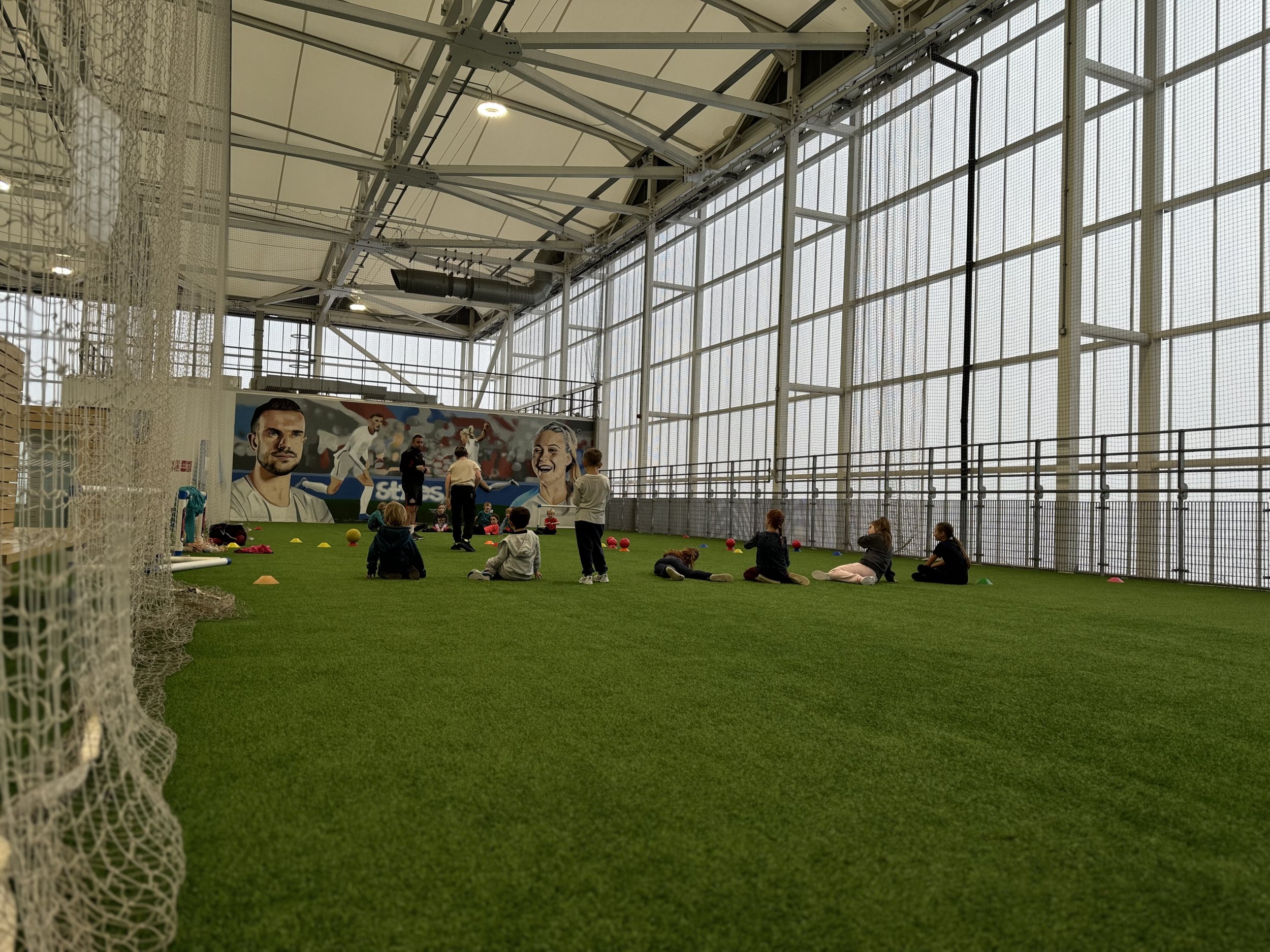Open Air Days
School, Reimagined
Imagine a school where students are empowered to soar to new heights, thriving in nature exploration and the thrill of discovery.
Featuring maths mastery, writers retreats and dynamic hands-on projects in the mornings, students also revel in many dedicated moments for self-directed studies: enquiry led learning and projects tailored to their passions.
The school day is structured to champion a culture of respect, where educators act as catalysts for learning; devoted to crafting a bespoke educational journey for each student.
Students are co-constructors of their own curriculum, as Open Air centres around the unique interests of children, with the intent of moulding itself to champion the strengths and aspirations of the students within our vibrant community.
Open Air inspires students to continually push beyond boundaries, embracing challenges as stepping stones to mastery. Teachers stand ready to ignite their curiosity and provide guidance when needed. Whether working independently, in groups of varying sizes, or alongside peers of diverse ages – the choice is theirs within our esteemed, autonomous learning environment.
Our extended school hours afford Open Air students the opportunity to delve deep into their studies, fostering robust class discussions, engaging in invigorating sports, relishing playtime, and immersing themselves in enriching projects – all contributing to a harmonious and joyful, thriving community.




Aspirational, joyful thriving
The ultimate purpose of education is to prepare us for life. To this end, education needs to focus on more than knowledge recall alone. Alongside knowledge, there are all-important skills, values and actions which are critical to strengthen and develop over the course of a child’s education.
A Typical Open Air Day
A typical day for students at Open Air Education is structured around school's educational philosophy. The day blends academic learning with hands-on, experiential activities in a natural environment. Here’s a general outline of what students might experience:
Morning: Arrival and Community Time
Students typically arrive at the school campus, which is set in a lush, natural environment. The day begins with a check-in, often involving a greeting or community-building activity that sets a positive tone for the day. The school day often starts with a morning circle or assembly. This time is used for sharing announcements, discussing the day's agenda, and fostering a sense of community. It may also include mindfulness practices, songs, or storytelling.
Academic and Thematic Learning
The curriculum is integrated, focusing on big ideas that cross disciplinary boundaries. For example, a theme like "Water" might include science (the water cycle), mathematics (measuring water usage), and social studies (global water issues). A significant portion of the day is dedicated to project-based learning, where students work on projects that integrate various subjects and emphasise sustainability. Projects are often student-driven and can involve building, gardening, or community outreach.
Midday: Lunch and Breaks
Meals are typically communal, with an emphasis on healthy food. Breaks and lunchtime allow students to relax, play, and interact with nature. The campus provides ample space for outdoor activities, including gardens and play spaces such as the meadow.
Afternoon: Hands-On Activities and Creative Expression
In the afternoon, students engage in hands-on activities that might include arts and crafts, physical education, music, or dance. These activities are designed to foster creativity and physical well-being. Students often participate in environmental projects, such as tending to the school's gardens or working on sustainability initiatives. This hands-on approach teaches practical skills and emphasises the importance of environmental stewardship.
End of Day: Reflection and Closure
The school day often concludes with a reflection and review session, where students discuss what they’ve learned and reflect on their experiences. This helps consolidate learning and fosters a growth mindset. The school may hold a closing circle or another community activity to end the day on a positive note.
Key Features of an Open Air day
Sustainability Focus: The curriculum is designed with opportunities for sustainability and environmental consciousness. Students learn about sustainable practices and are encouraged to implement them in their daily lives.Experiential Learning: The school emphasises learning by doing, whether through projects, outdoor activities, or creative expression.
Holistic Development: The school aims to develop not just academic skills but also emotional, social, and ethical growth.
Open Air Education offers a unique educational experience that blends rigorous academics with a strong emphasis on environmental sustainability and holistic development. This approach aims to prepare students to be independent, capable, self confident, responsible global citizens with a deep understanding of their impact on the world.
Open Air week
We have long found at our Early Years sister sites that a 4 day school week is incredibly beneficial to children and our team.
We researched the proven benefits for Open Air students and educators and found that a shorter school week is great for:
Enhancing Well-being for All
Alleviating Stress and Burnout: Research shows that reducing the school week can be a powerful remedy for stress and burnout among students and teachers alike. An extra day off grants the invaluable chance to unwind and revitalise.
Boosting Attendance Rates: Studies indicate a rise in student and teacher attendance with a condensed school week. The additional day off enables individuals to attend appointments without missing crucial school days.
Boosting Academic Excellence
Heightened Focus and Productivity: By extending weekends, students return to school rejuvenated and with a renewed vigour for learning. This heightened focus often correlates with enhanced academic performance and productivity.
Extended Study Time: The surplus day off offers students more time to tackle assignments and self - study, potentially deepening their grasp of the subject matter.
Expanding Experience through Extracurriculars
Ample Time for Enriching Activities: With an extra day off, students can actively participate in extracurricular pursuits such as sports, arts, and community service, all of which play a pivotal role in their holistic development.
Enrichment Programmes: Students can utilise the extra day for optional enrichment programmes, workshops, and educational activities beyond the conventional timetable.
Realising Operational Efficiency
Optimising Resource Management: The surplus day empowers educators to engage in planning, professional development, and collaborative initiatives, ultimately enhancing the quality of education delivery.
Fostering Family and Community Bonds
Quality Family Time: The extra day off allows families to come together, fostering stronger bonds and enriching the social and emotional growth of children.
Community Involvement: Students can actively participate in volunteering and local events, deepening their ties with the community and broadening their horizons.
The Power of Small Class Sizes at Open Air Education
Small class sizes offer numerous advantages for Open Air students, enhancing their educational journey in inspiring ways.
Students receive personalised attention with tailored teaching methods for each student lead to academic success. Research shows that students benefit from improved academic performance as smaller classes lead to higher attainment and deeper understanding. We see enhanced educator-student relationships with stronger connections and increased trust which promotes a supportive learning atmosphere.
Greater Participation and Engagement: Active involvement and confidence building enhance the learning experience.
Enhanced Learning Environment: Detailed feedback and flexible teaching strategies improve student skills.
Improved Social Development: Stronger peer relationships and supportive environments foster community.
Small class sizes offer a personalised, engaging, and effective educational experience. These classes enable tailored attention, foster relationships, and create supportive environments for better academic and personal outcomes.







